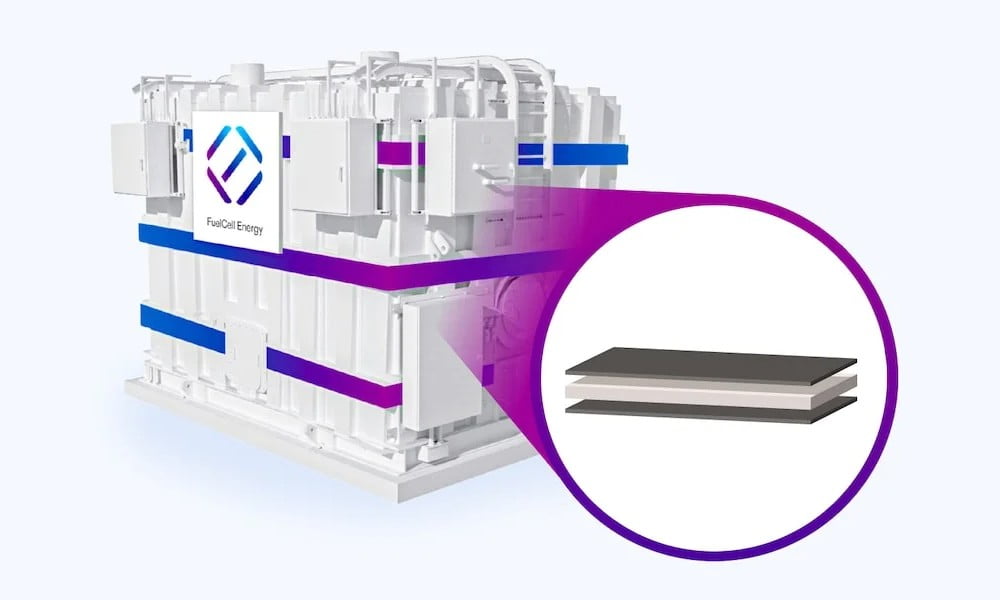FuelCell Energy, ExxonMobil Continue Carbon Capture Project
2 min read
FuelCell Energy and ExxonMobil have agreed to extend their joint development of their carbon fuel cell technology for carbon capture applications through March of 2024.
The jointly-developed carbon capture technology has been found to be feasible for commercial use, according to Jason Few, CEO of FuelCell Energy. The company will now work with ExxonMobil on a potential demonstration project.
The new technology uses carbonate fuel cells to capture and concentrate carbon dioxide from external sources, like combustion exhaust. Once carbon is directed into the fuel cell, electricity and hydrogen are produced while carbon dioxide is captured to then be sequestered or used otherwise. The technology proves especially useful for hard-to-decarbonize sectors, like heavy industry.
“The focus on solutions for industrial businesses to reduce their emissions continues to grow, and we are excited about the promise of this technology to capture CO2 emissions from industrial and commercial exhaust streams,” said Few. “We are confident that the carbonate fuel cell technology can play a key role as part of integrated carbon abatement solutions, which include carbon utilization and sequestration. We are committed as a company to help reduce carbon emissions worldwide.”
A final investment decision is expected later this year after the companies finalize engineering and cost elements of the technology.
Increased Global Investment in Carbon Capture Technology
This project plays a part in the growing carbon capture and storage (CCS) industry, which is projected to be valued at $34.86 billion by 2033. Technological advancements such as FuelCell Energy and ExxonMobil’s joint project are required to make carbon capture affordable and feasible for widespread adoption.
Carbon storage still faces scrutiny from environmental organizations for being expensive and for currently lacking significant results compared to other decarbonization options like using renewable energy. However, carbon capture is cited as necessary in meeting Paris Agreement goals as fossil fuels continue to power most of the world.
Along with CSS platforms such as this one, nature-based carbon capture solutions have been in development as well in efforts to mitigate potential environmental damage associated with the technology. Despite a number of challenges facing CCS, the sector is expected to offer more opportunities for achieving global climate goals as technologies continue to develop and improve.





